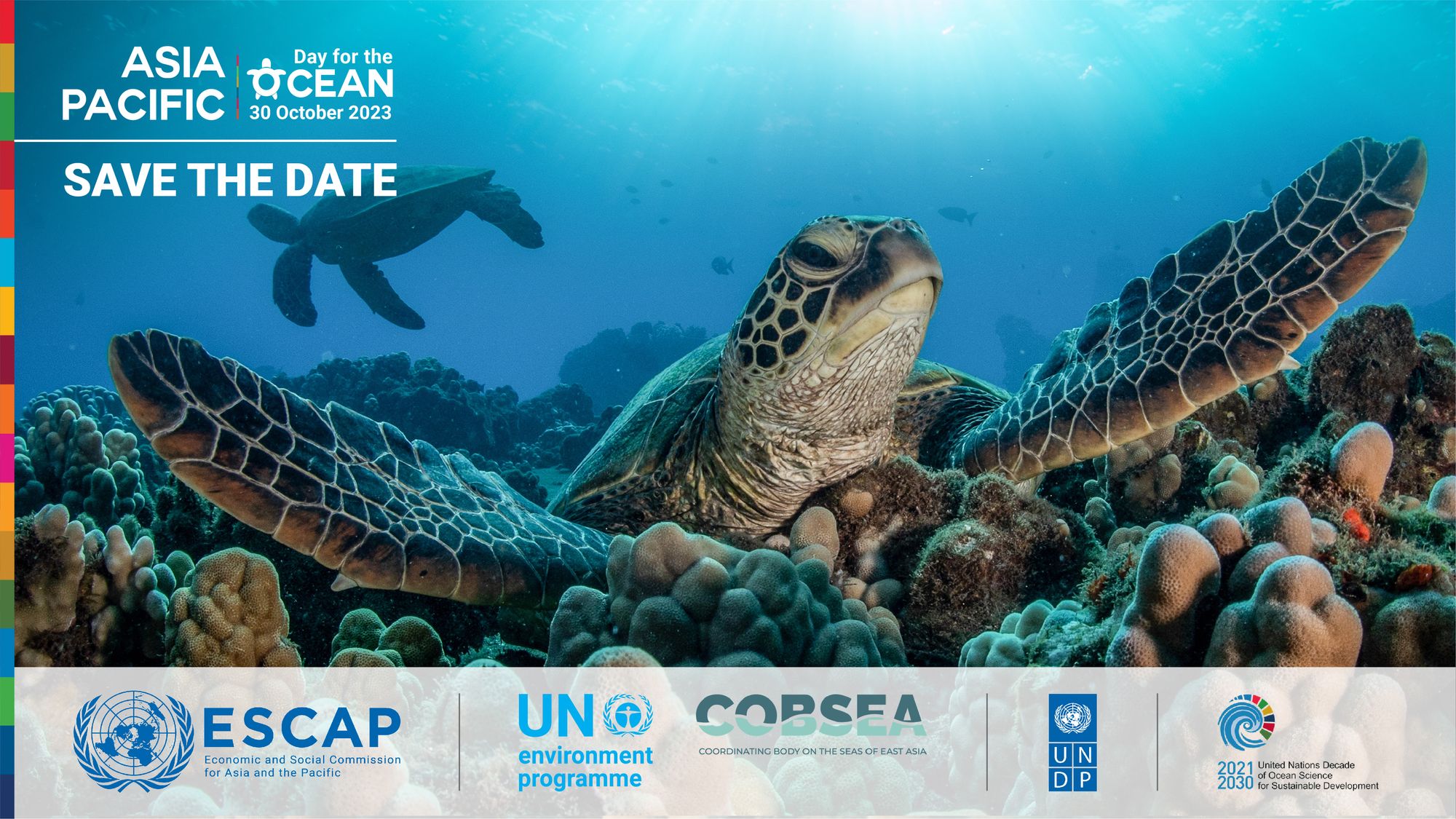
Sixth Asia-Pacific Day for the Ocean
View Details
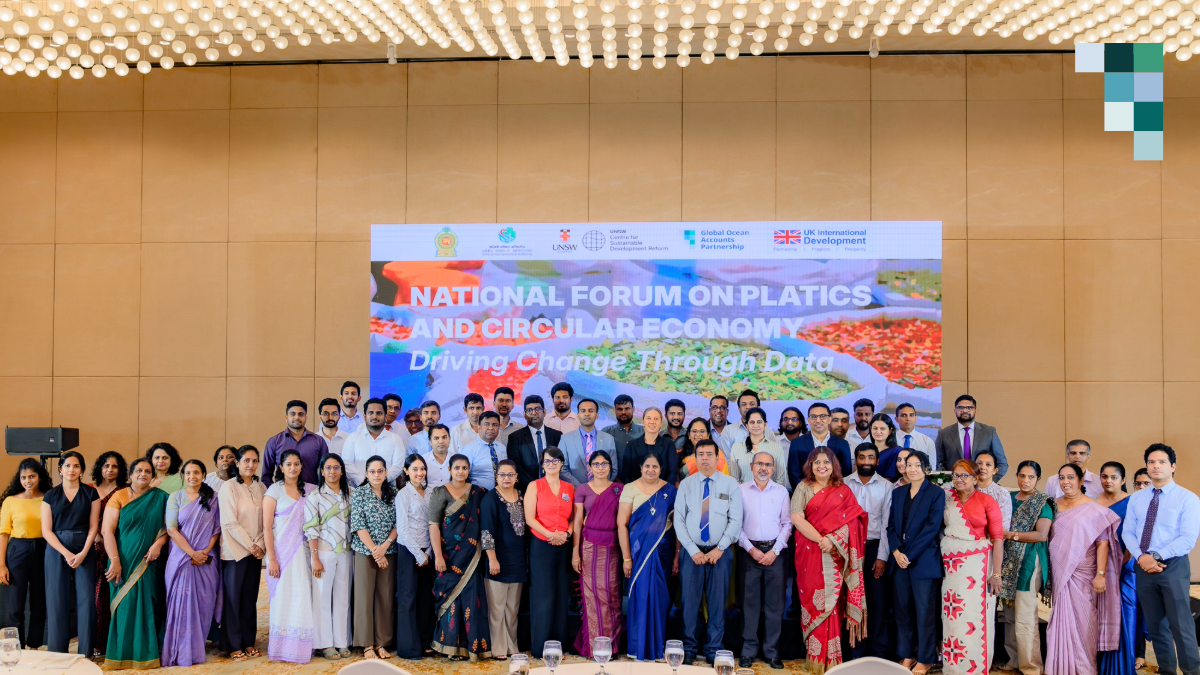
Over 150 representatives from government, NGOs and private industry convened for the National Forum on Plastics and Circular Economy: Driving Change Through Data. This event represents an important step towards strengthening Sri Lanka's response to the plastic crisis.
Over 150 representatives from government, NGOs and private industry convened for the National Forum on Plastics and Circular Economy: Driving Change Through Data. This event represents an important step towards strengthening Sri Lanka’s response to the plastic crisis.
The National Forum was organised by the Ministry of Environment, Central Environmental Authority (CEA) and National Solid Waste Management Support Centre (NSWMSC), with support from the UNSW Centre for Sustainable Development Reform (CSDR) as the Secretariat of the Global Ocean Accounts Partnership (GOAP) and funding from the United Kingdom’s Blue Planet Fund.
The Sri Lankan government and government agencies outlined the country’s priorities for managing plastic and achieving a circular economy ahead of the final round of negotiations for the plastic treaty this August (INC-5.2), including discussions around Extended Producer Responsibility (EPR), health impacts of plastic and the need for data to ensure transparency and accountability and track progress towards national and international targets.
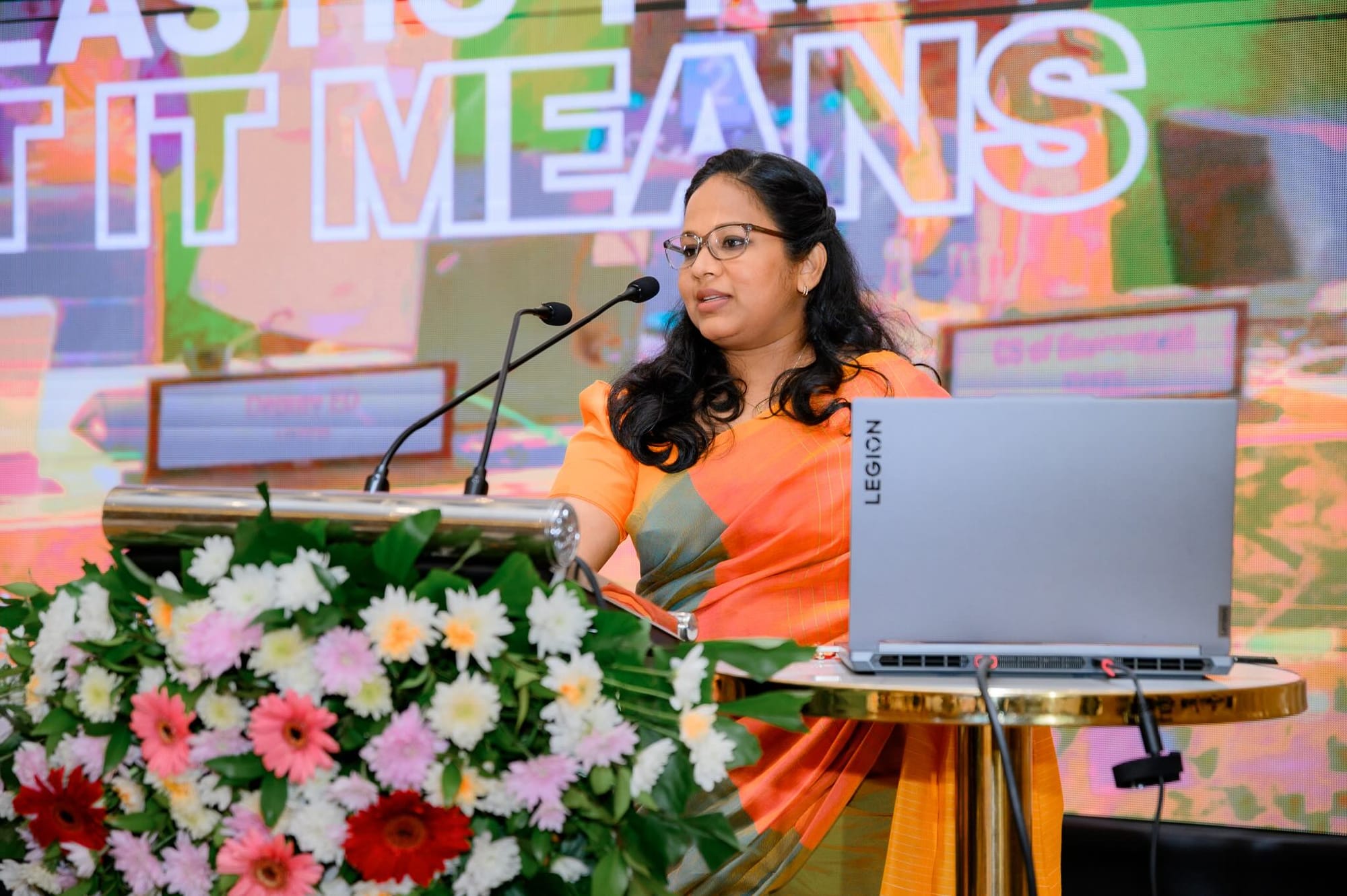
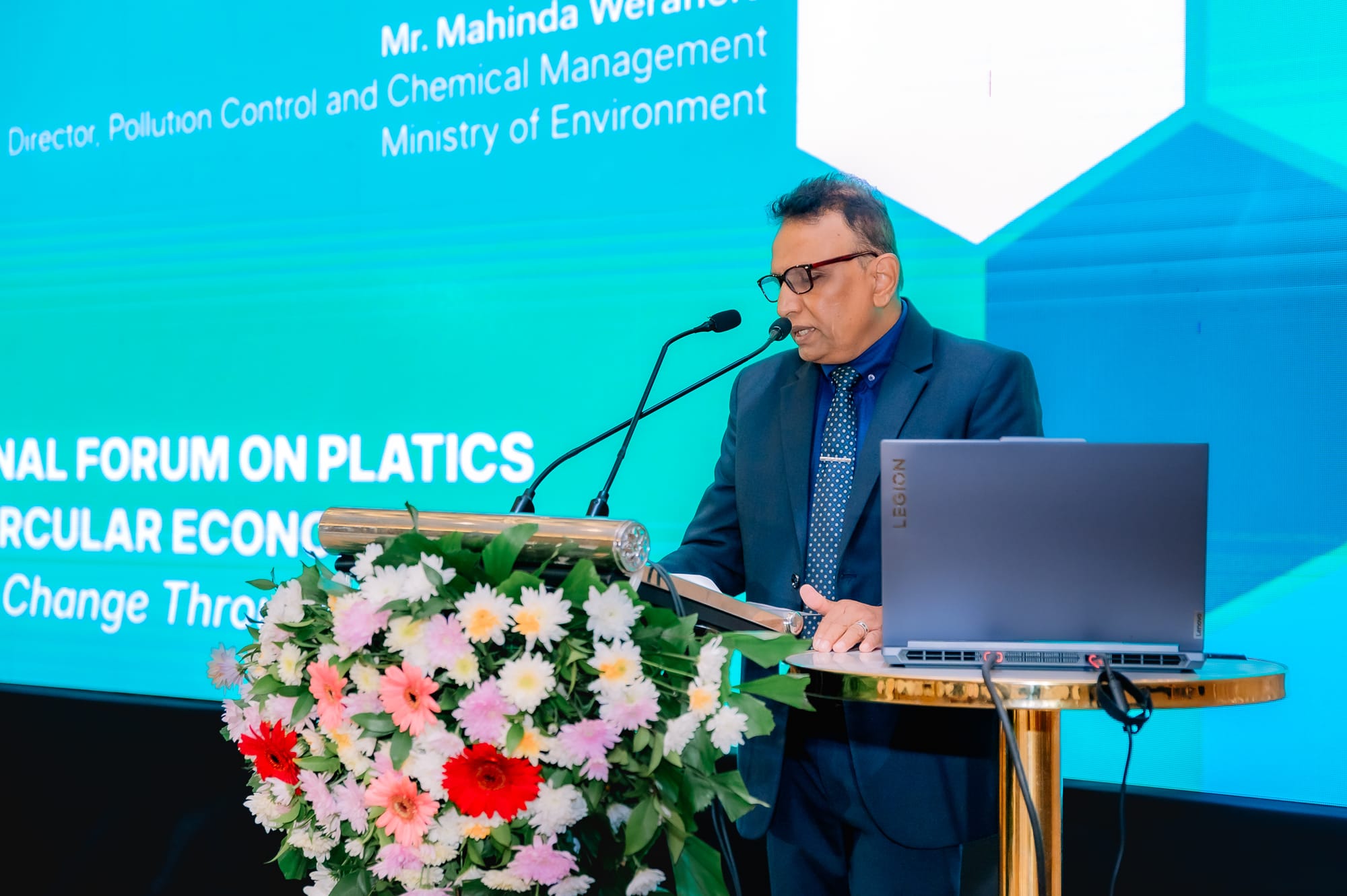
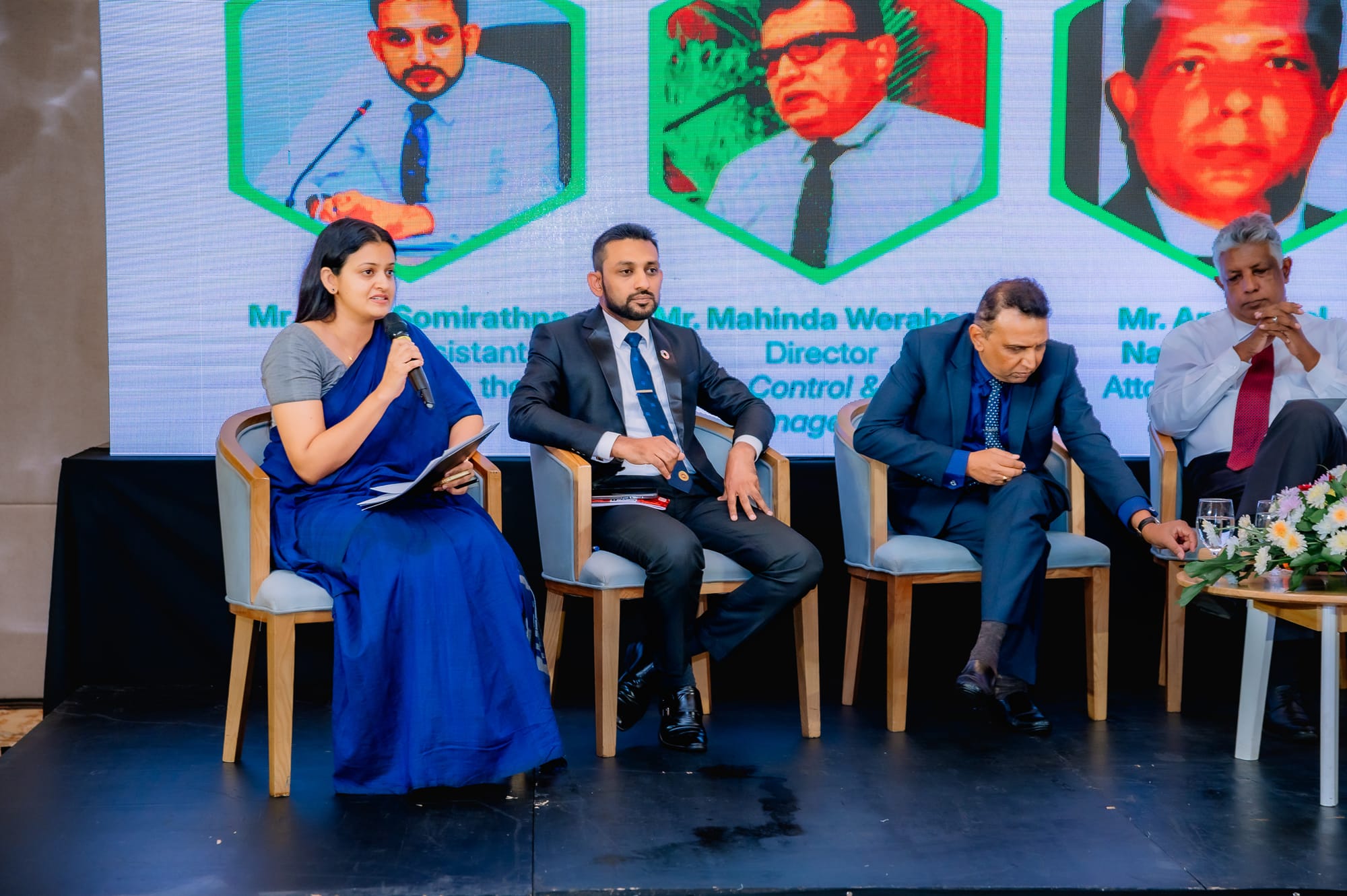
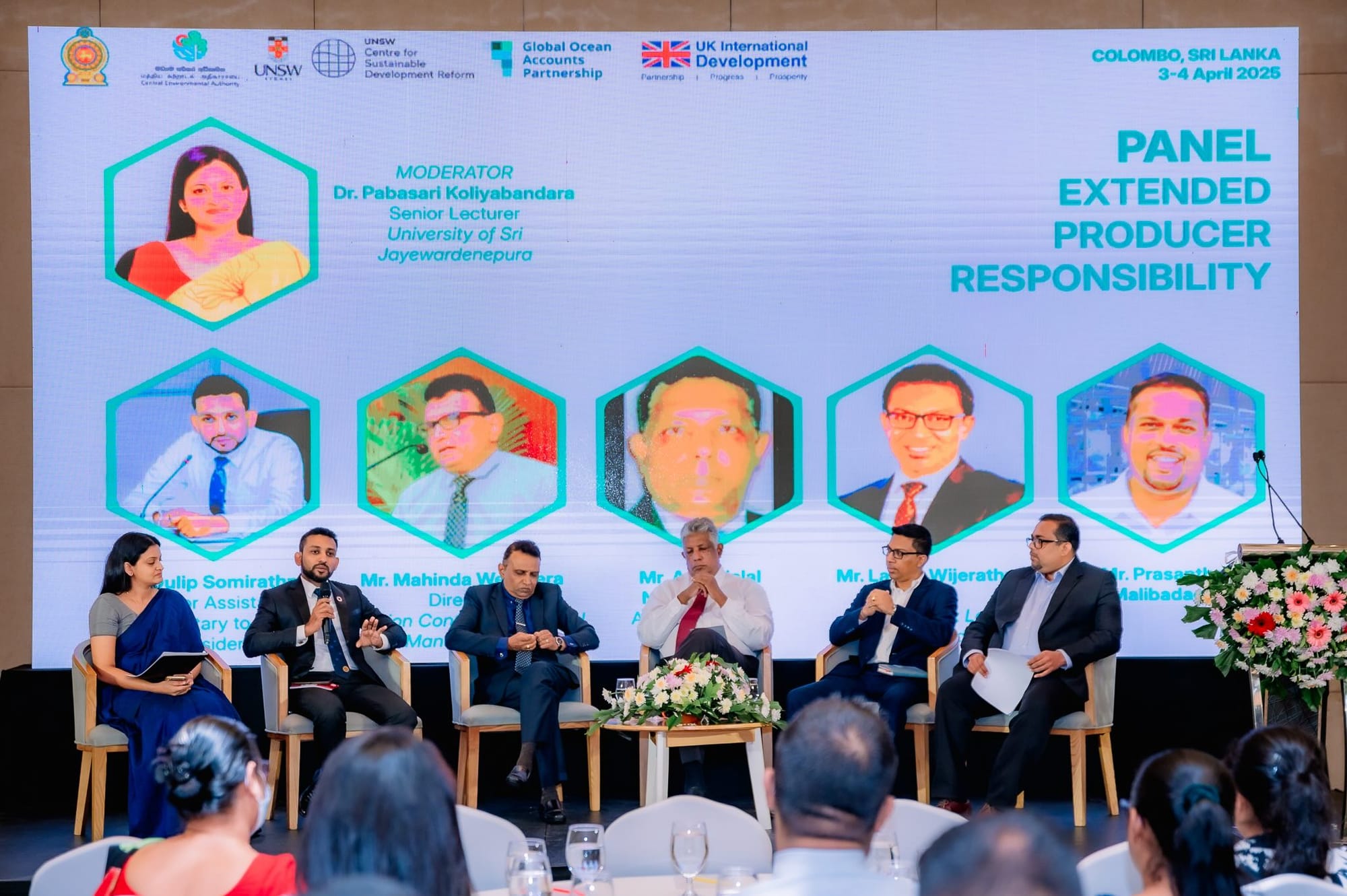
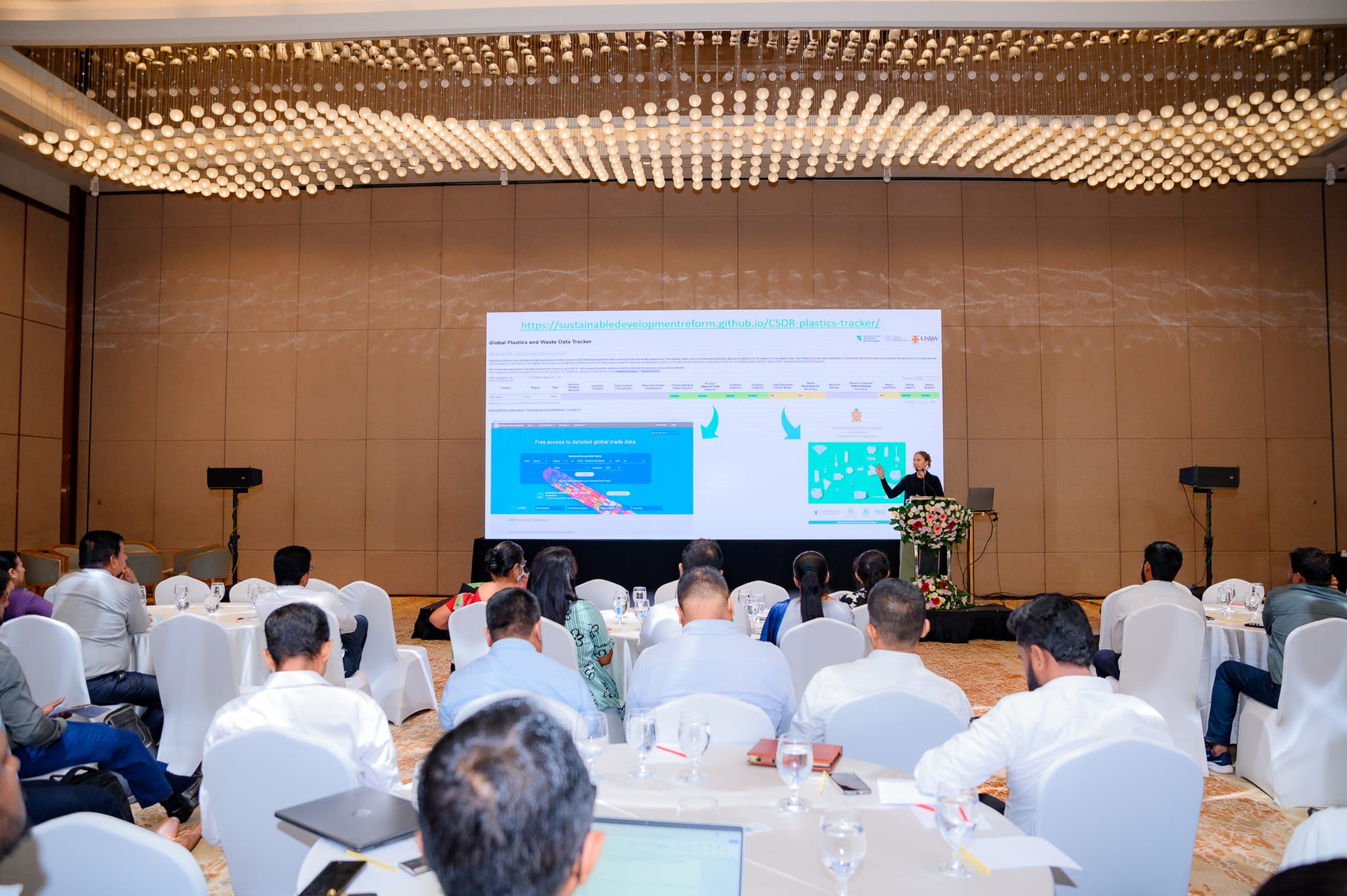
Credit: Zocreative Labs
Over 70 representatives from 31 organisations leading, supporting or funding plastic projects across Sri Lanka attended to introduce their organisation’s work. Through this exercise, participants could identify potential collaborators and build new partnerships.
The activities and knowledge shared during this workshop will contribute to the National Dashboard of plastics projects currently being developed by the Central Environment Authority and Japan International Cooperation Agency (JICA) with support from the UNSW Centre for Sustainable Development Reform.
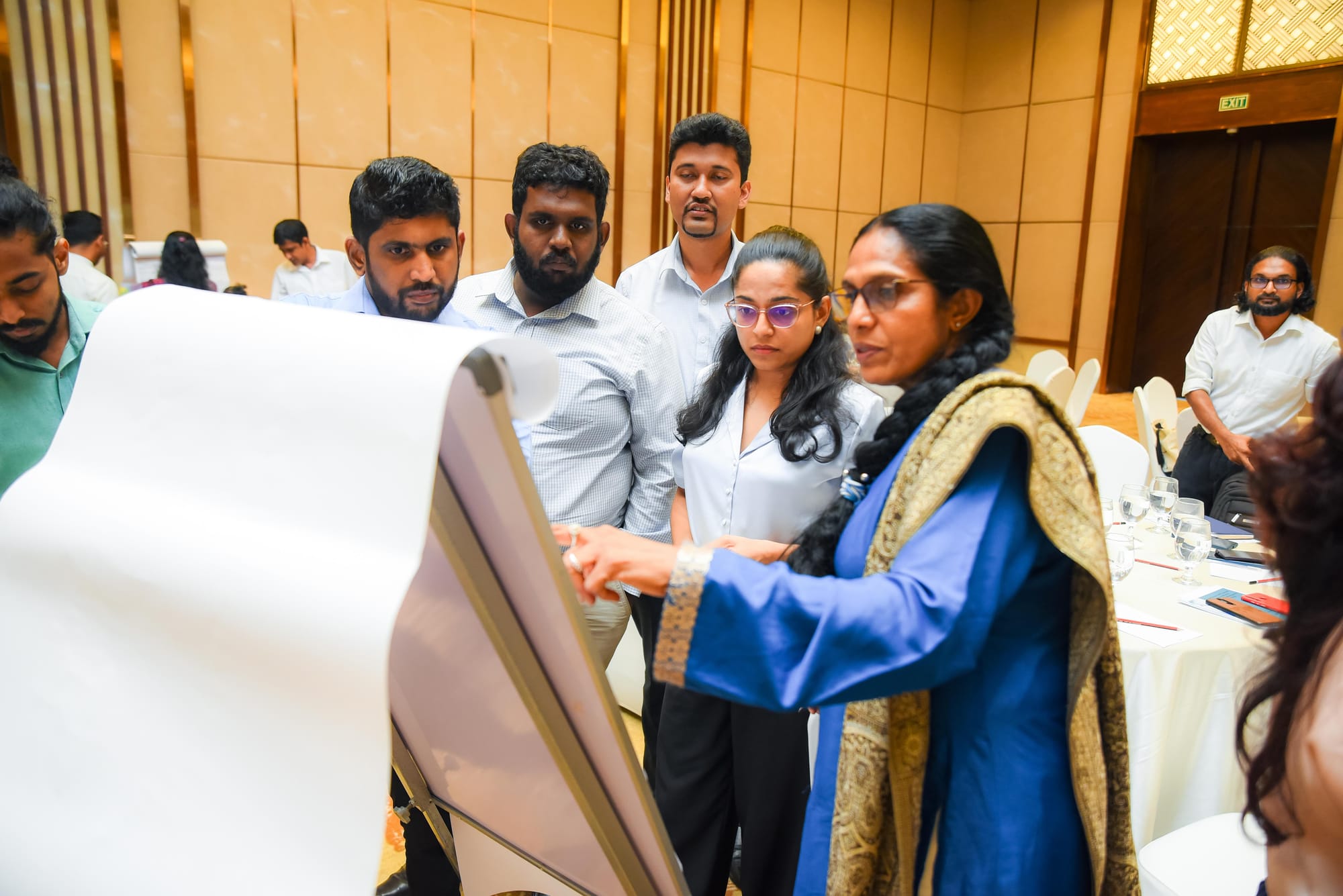
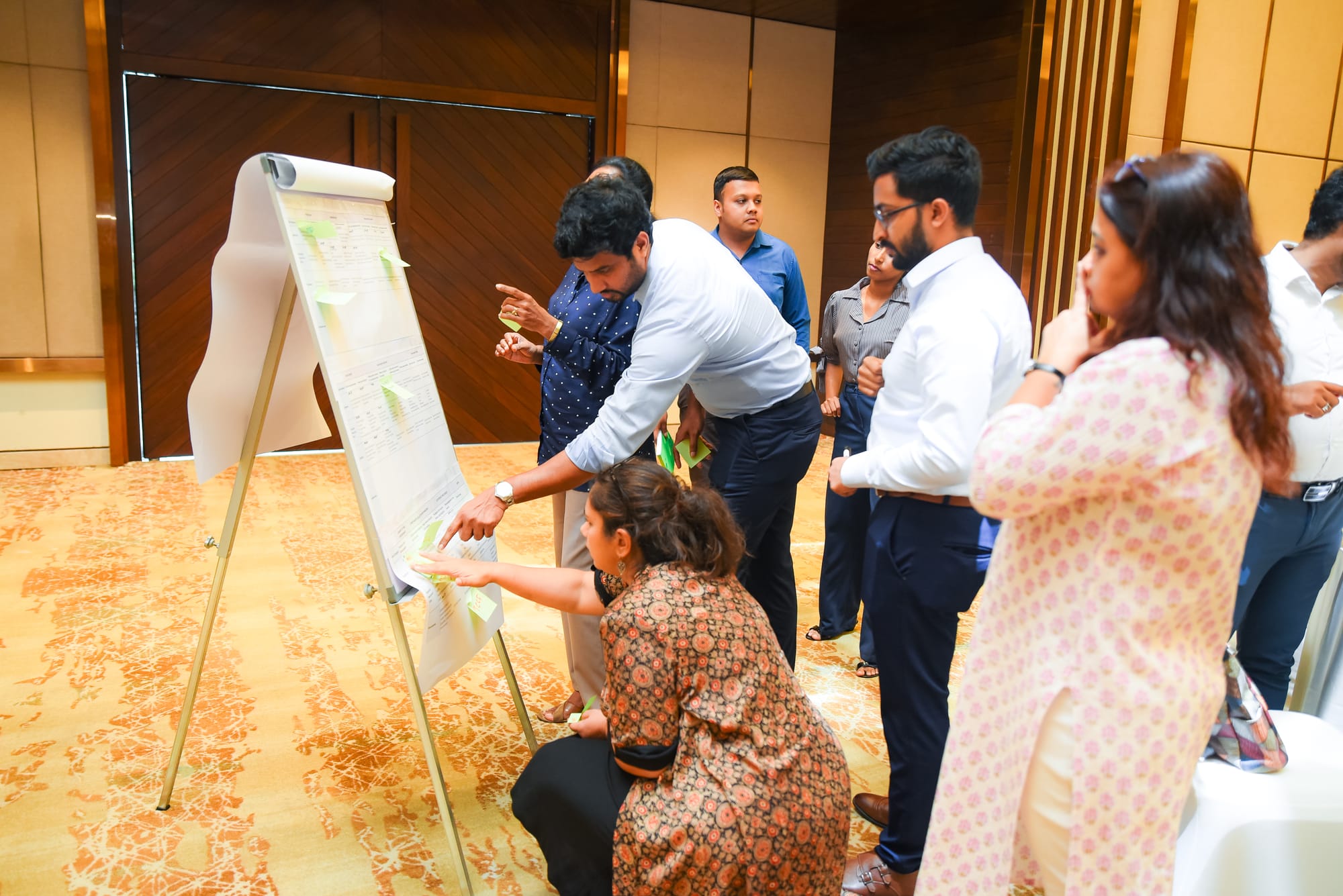
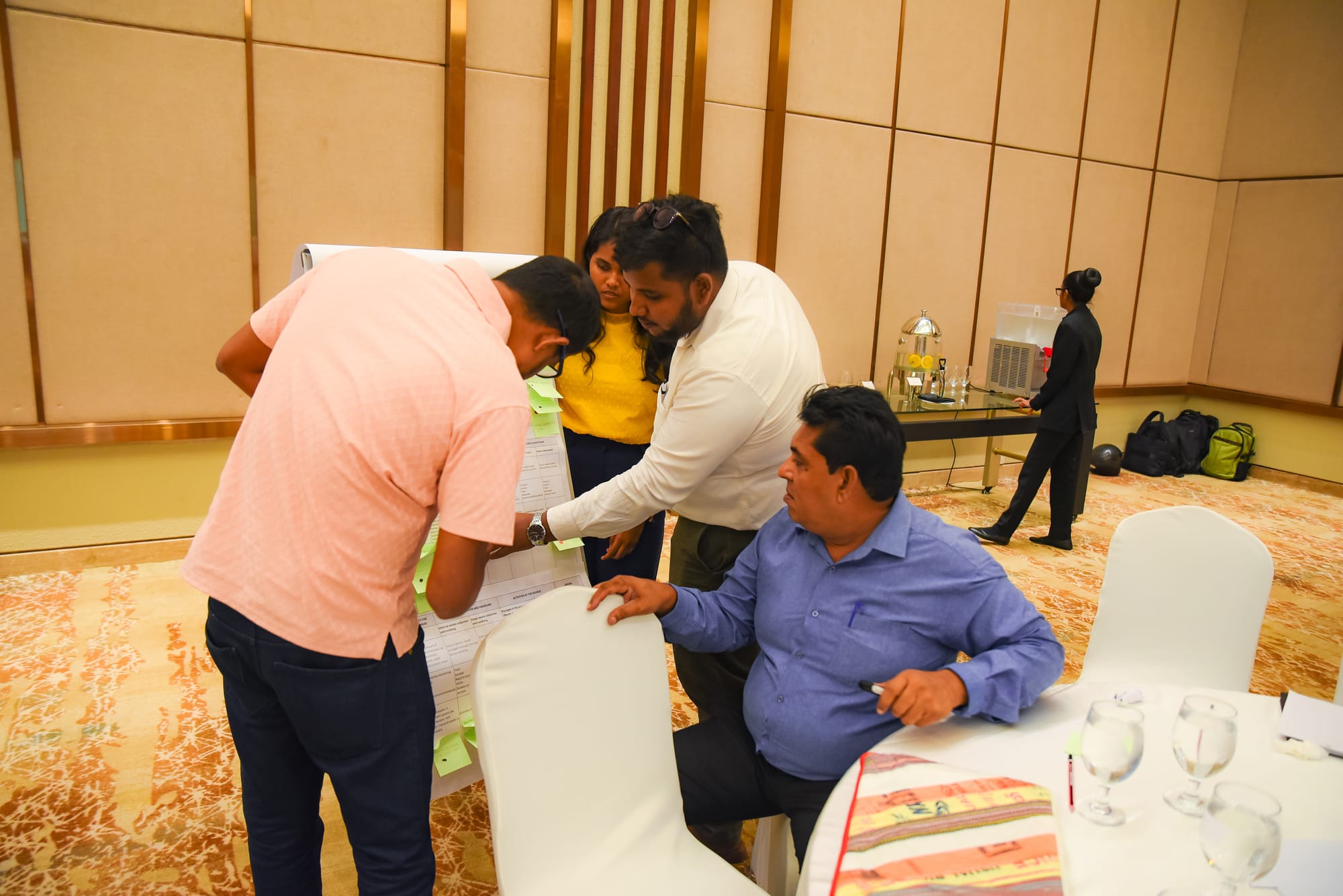
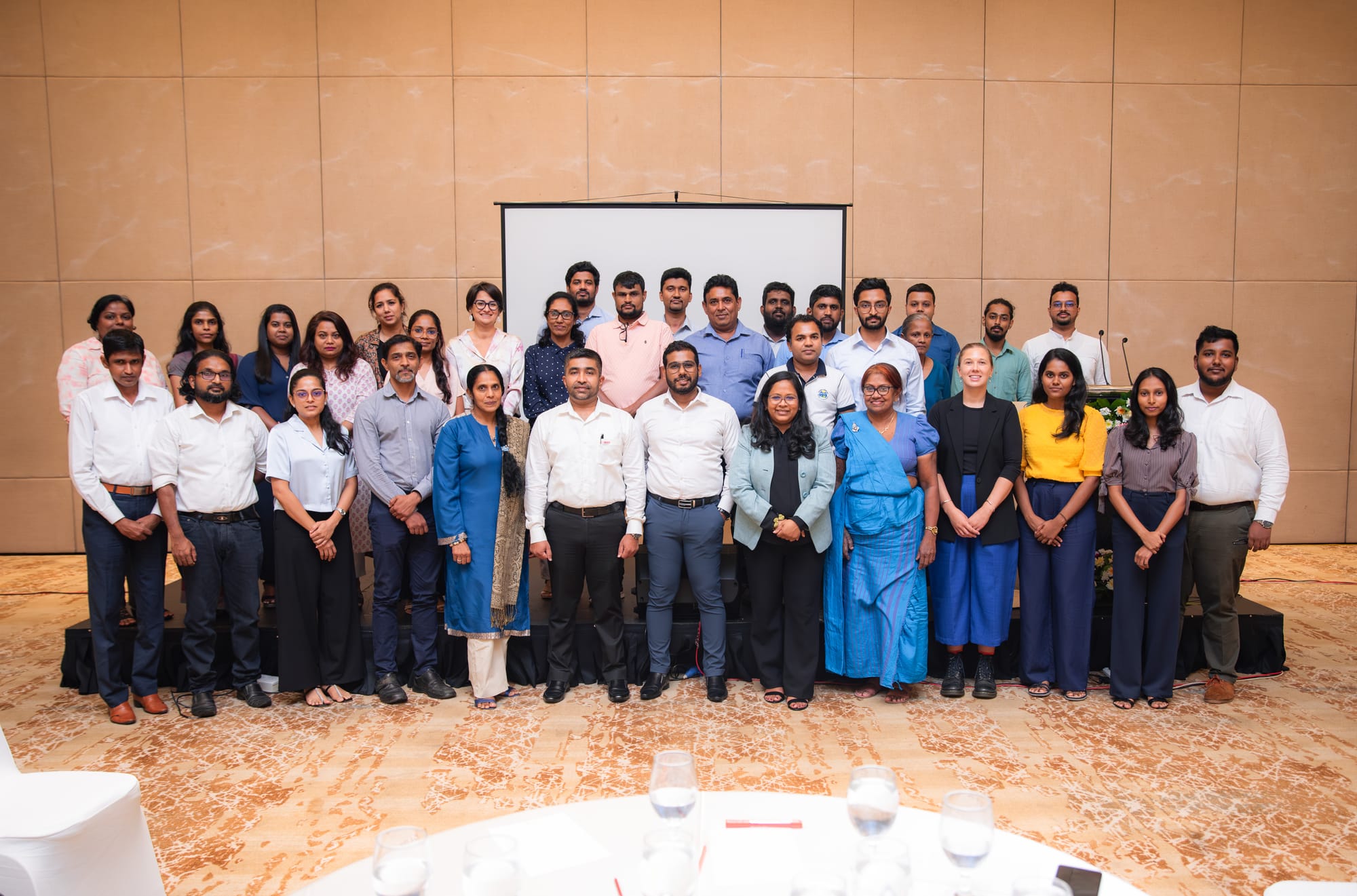
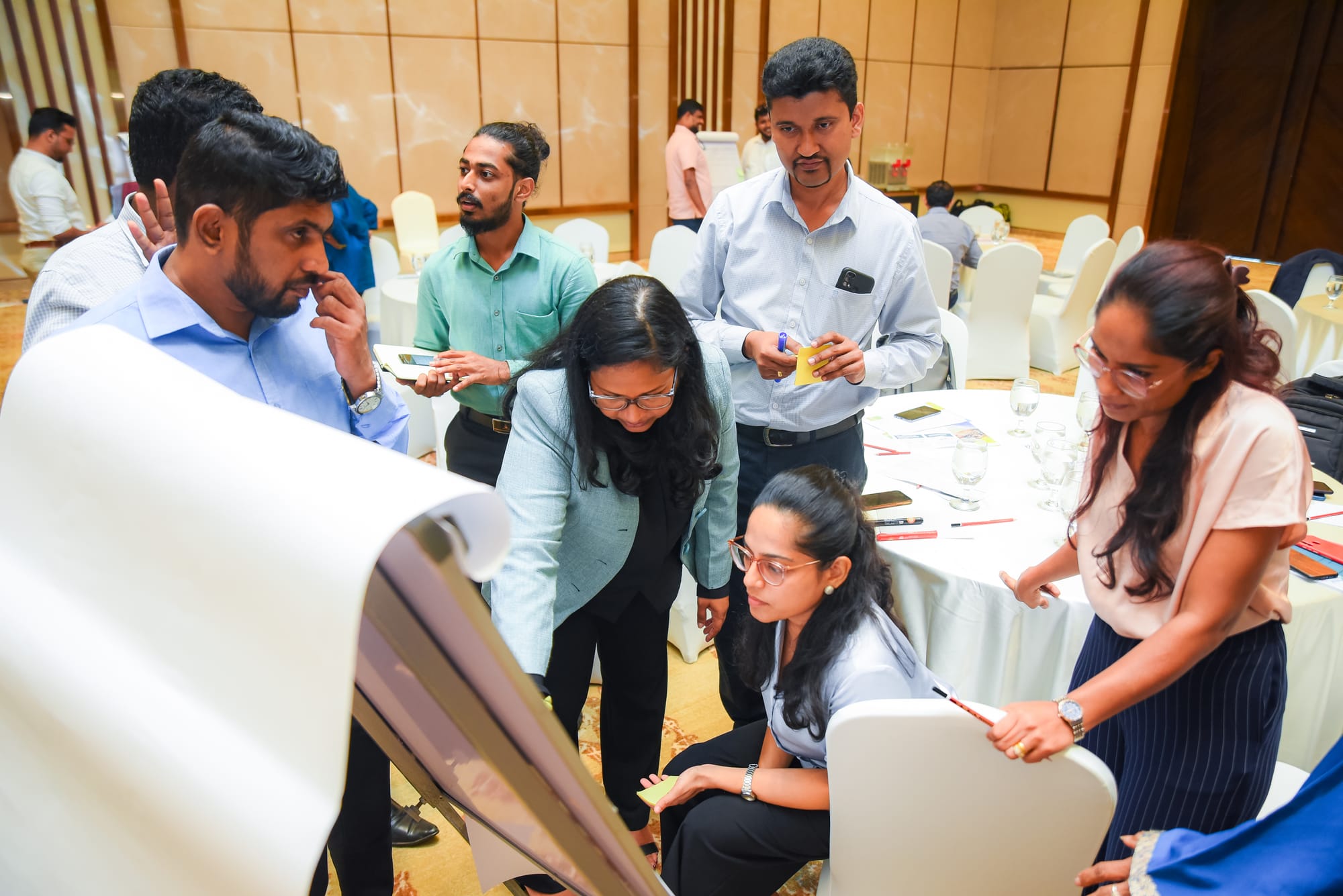
Participants engaging in the workhop activity: mapping plastic data in Sri Lanka across the lifecycle using the Plastic Data Checklist. Credit: Zocreative Labs.
This Dashboard of plastic projects in Sri Lanka will provide a standardised framework for measuring the quantities of plastic in Sri Lanka across the lifecycle and its economic contribution or impact. By integrating environmental, economic and social data, this approach enables policymakers to make evidence-based decisions that balance development with conservation priorities. As pressures to address the plastic crisis intensify, collecting data on plastics will be critical for monitoring plastic across the lifecycle, evaluating policy effectiveness and supporting sustainable management resources for current and future generations.
The timing of the National Forum is critical as nations prepare for the resumed final round of negotiations (INC-5.2) for the internationally legally binding agreement to end plastic pollution (i.e., the global plastic treaty). Sri Lanka has positioned itself as a key contributor to the international plastic treaty through capacity building initiatives such as this forum, requesting technical and advisory support from the Centre for Sustainable Development Reform and Scientists’ Coalition for an Effective Plastic Treaty and producing several knowledge products to guide a united national response. At the last negotiations (INC-5.1), Sri Lanka delivered country statements addressing key issues such as Extended Producer Responsibility (EPR), the importance of data, regulation of plastic waste trade, and the establishment of national inventories and databases.
Data will be crucial for the effective implementation of any agreement on plastic - enabling parties to understand the flow of plastics within their economy, establish realistic but ambitious goals, monitor the implementation of those measures and enable aggregation of global progress towards global goals.
To support countries in assessing the availability and reliability of their data on plastics, the UNSW Centre for Sustainable Development Reform has developed several resources and tools. These tools were presented during the National Forum and we’ve included links below:

View Details
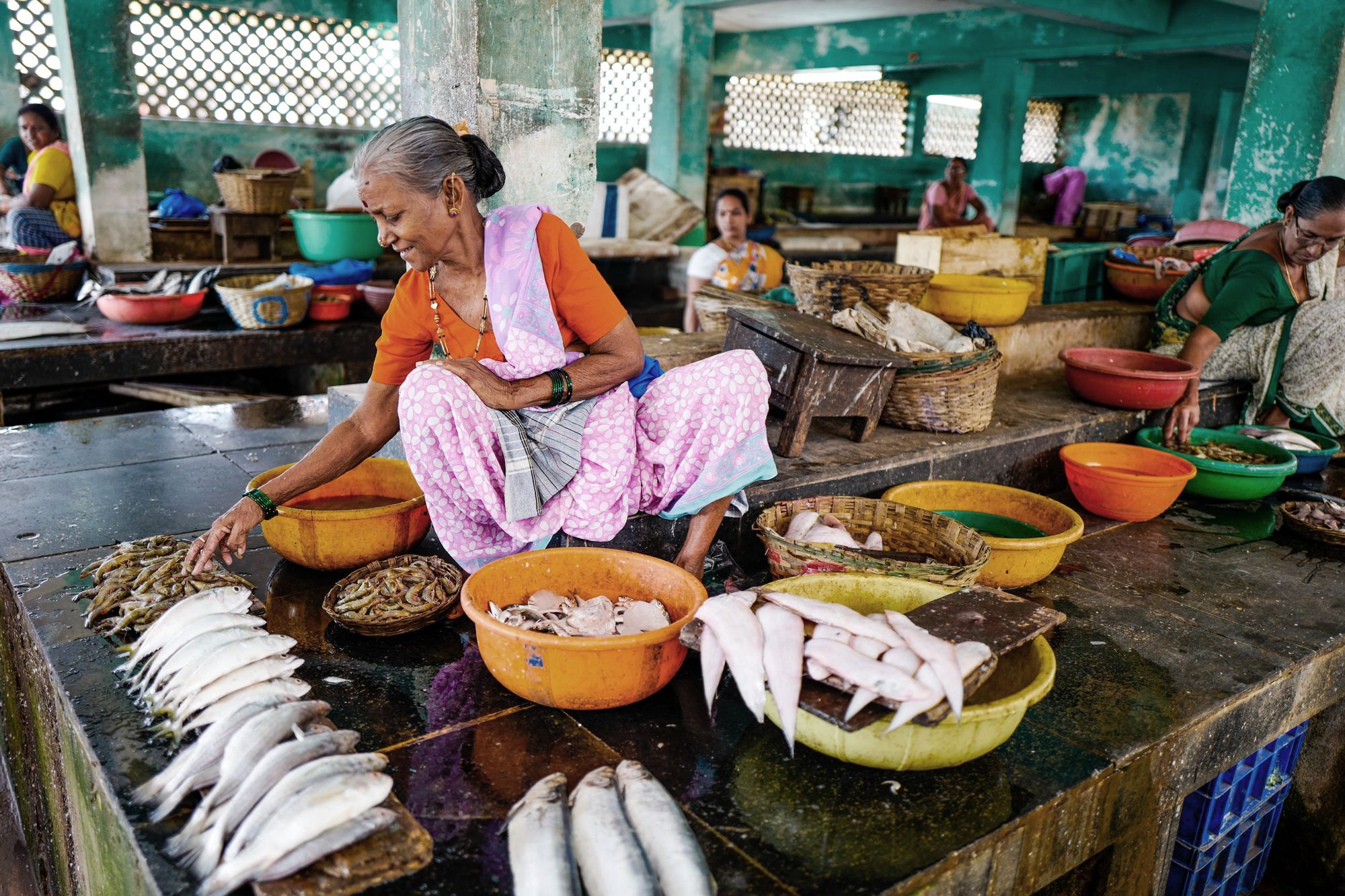
View Details

The objective of the session in the UN World Data Forum was to jointly envision a future with better and more inclusive ocean data organisation and management.
View Details